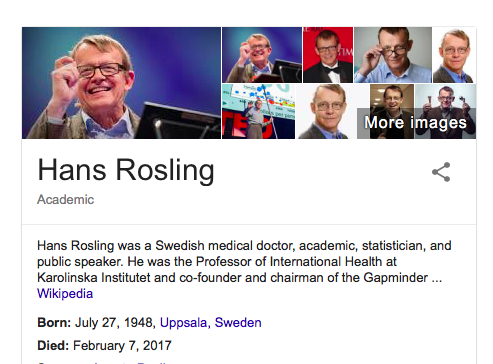
Today I had the joy and privilege to go and attend a performance at my son’s Kindergarten. (I love that I, as a speaker, have job with such freedom that I can decide to take some time off in the middle of the day to go see my son perform.)
The class was performing a play about nature that they had written themselves. (Summary of the message: We need to be nice to animals and we need to stop cutting down trees…)
My son had gotten the role of the tiger, but also one of the roles of reading the story line to the audience of about 100 people.
As a father I was proud as a rooster.
As a speaker I was impressed with the quality of their performance.
Watching my son on stage became a lesson in the simple, basic rules of communicating a message.
Sometimes when someone is getting all tied up in complicated phrases trying to explain something it can help to stop them and say: “Tell it to me as if you are explaining it to a six year old.”
And sometimes I think we might over-complicate the business of delivering a speech. So todays post is about what a 6-year old can teach us about speaking.
This is what my son taught me today.
1) Speak clearly.
Many adult speakers seem to think that to get your message across you need to speak loudly, as if speaking loudly makes people hear you better.
That is not true. If anything a speaker speaking to loudly makes the audience stop listening to you – and makes the sound guy frustrated over having to constantly adjust the volume of your mic.
What my son showed me today was that it’s not about being loud – but about being clear. As he read the words from his script he pronounced them with such crispness and sharpness that he had the attention of every, single person in the room.
2) It’s not about you.
Hearing my son read the text about how the “hunters were killing all the animals” I could sense that there was not a single thought in his head about any inner voice going: “Is my fly open?”, “Are they listening to me?”, “I wonder what they are thinking of this?” etc. He was there to deliver his lines.
And you are there to deliver yours.
3) Be short and concise.
The full dialogue of the section where my son was acting out his message about the trees was him and his friend walking up to the middle of the stage, looking out at the audience and saying:
“Stop cutting down the trees!”
Then they walked back to the side of the stage and sat down.
Message delivered…
Speakers are often given one hour for a speech almost like it’s a habit. Like it’s a law that a speech has to be an hour. Most speeches do not. I wish more organisers of conferences realised that a 45 minute speech is often as effective as a 1 hour speech, and a 45 minute speech can often be delivered in 20 minutes. If anything that is what TED.com has shown us.
So the next time you are asked to give a speech, ask yourself: “How quickly could I deliver this message with maximum effect?” and then ask for a speaking slot that long. Or should I say “that short”.
4) Have fun
It’s just a speech.
Or in their case: it’s just a play.
A few seconds after performing they were happily celebrating a classmates birthday. A few minutes before the play they were goofing around.
Giving a speech, or a performance, is something fun. Enjoy it. Embrace it. Have fun doing it.
5) It’s not about being perfect – it’s about being authentic
They say practise makes perfect, and they do have a point. But practice, too much practice, also risk suffocating the spur of the moment, real life, authenticity that comes from just being in the moment.
Those kids today were not perfect in their delivery – but they were being in the moment – and there is nothing more perfect than that.
6) There is nothing to be nervous about.
Many adults would be terrified to go up infront of 100 strangers to speak, not to mention to go up and perform a play that they had written themselves, dressed as a tiger …
My son was totally oblivious to the idea of being nervous. I was biting my tongue after the performance as my adult brain wanted to ask him: “So, were you nervous?!” but luckily my fathering brain stopped those words from coming out of my mouth. There is no need to start putting the idea of being nervous into his clean and innocent mind.
The sad thing is that many adults will get stressed out with angry butterflies in their stomachs for delivering a speech. Stage fright is real and many people suffer from it, but we should all be inspired by those kids on the stage and realise that there really isn’t anything to be nervous about. Go up there and deliver your speech.
Those were some of the lessons my son thought me today.
I must also add that I just love that he goes to a school – International School of Singapore – where they encourage kids as young as six to go up and present and perform at such a young age. These kids are already getting exposure to and experience of the nobel art of delivering a message – one of the most important life skills there are.
Watching the kids perform I was reminded of how, when I was six years old, my father, who was teacher and a part-time musician would bring me and my brother up on stage at his band’s concerts and have us sing a song or two with the band. The ladies in the audience loved the cute kids singing – and we liked how they would bring us small presents like a soft drink or some candy as “tips”. And I understand now that those childhood mini-concerts instilled in me a sense of confidence and a feeling of being comfortable communicating to big groups of people.
Forty and some years later that skill is now taking me around the world to speak. And that is a joy and a privilege – but still that means nothing compared to the joy and privilege of taking the day off to go and see my son perform.

